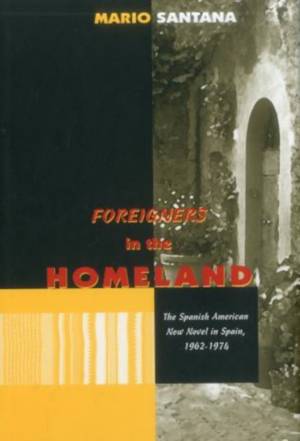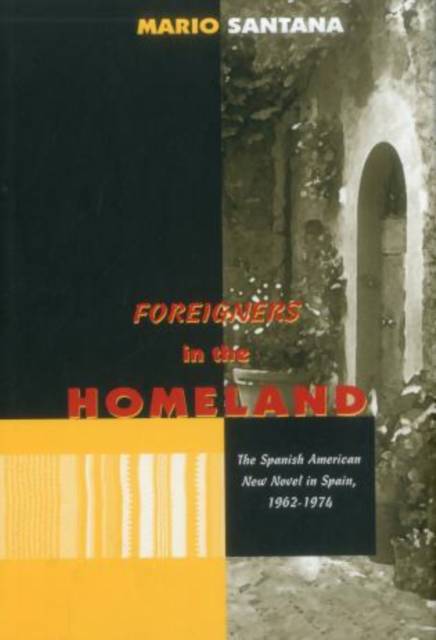
- Retrait gratuit dans votre magasin Club
- 7.000.000 titres dans notre catalogue
- Payer en toute sécurité
- Toujours un magasin près de chez vous
- Retrait gratuit dans votre magasin Club
- 7.000.0000 titres dans notre catalogue
- Payer en toute sécurité
- Toujours un magasin près de chez vous
92,45 €
+ 184 points
Description
Foreigners in the Homeland charts the course of Hispanic inter-literary relations during the 1960's and 1970's through analysis of the reception of "Boom" novelists and texts in Spain. Little consideration has hitherto been given to the cultural significance of this development. Working from an expanded notion of national literature that critiques traditional notions of literary influence and national origin, this well-documented and theoretically sophisticated book argues for the "Boom" novel as one of the leading models for fictional writing at this time. This argument complicates and enriches the understanding of the impact of Spanish American novelists on their Iberian peers. Mario Santana thus fills a void in the literary histories of both Spain and Latin America. He examines the conjunction of a number of crucial developments in Spanish economics, politics, and the arts: the expansion of the Spanish book industry and its literary markets; the turn to Latin America as the primary site of revolutionary hopes for the European (and Spanish) left; and the crisis of social realism as the dominant model for Spanish fiction. Unusually comprehensive in scope and rich in literary-historical narrative, Foreigners in the Homeland is an original and important contribution to the study of the contemporary novel of both Spanish America and Spain.
Spécifications
Parties prenantes
- Auteur(s) :
- Editeur:
Contenu
- Nombre de pages :
- 200
- Langue:
- Anglais
- Collection :
Caractéristiques
- EAN:
- 9781611481235
- Date de parution :
- 01-10-00
- Format:
- Livre relié
- Format numérique:
- Genaaid
- Dimensions :
- 169 mm x 243 mm
- Poids :
- 528 g

Les avis
Nous publions uniquement les avis qui respectent les conditions requises. Consultez nos conditions pour les avis.






